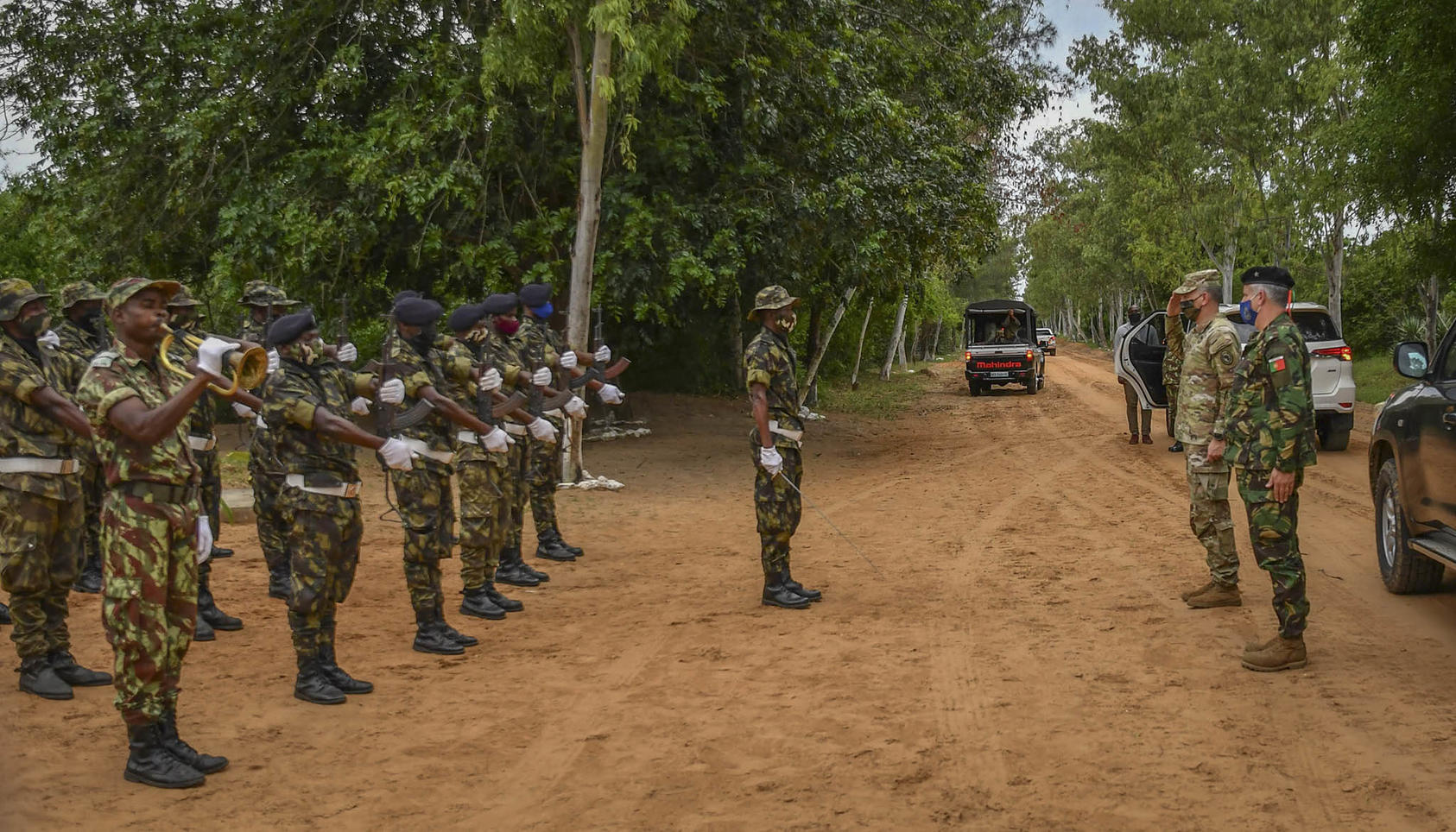A Diploma in Public Health in Bangladesh is a vocational qualification. It prepares professionals to tackle public health challenges.
Exploring the dimensions of public health in Bangladesh, professionals can enhance their expertise through the diploma course offered by numerous academic institutes. The curriculum is designed to provide students with comprehensive knowledge and practical skills necessary for protecting and improving public health.
The programs focus on various topics including epidemiology, health policy, disease prevention, and health promotion strategies tailored to local needs. Students gain hands-on experience through fieldwork, preparing them for positions in government agencies, NGOs, and healthcare facilities. Rigorous training ensures graduates are ready to contribute to the nation’s health sector, addressing the unique health concerns and improving community wellbeing across Bangladesh.
Public Health In Bangladesh: A Critical Landscape
Current State Of Public Health
Public health in Bangladesh has made significant strides forward. With improved access to primary health care and increased coverage of vaccination programs, notable progress is visible. Yet, the sector is still in its development phase. Key indicators such as infant mortality rates and life expectancy showcase the ongoing effort to improve public health outcomes. Diseases like tuberculosis and malaria are being tackled, yet non-communicable diseases are on the rise. This shift adds a dual burden to the public health infrastructure.Challenges In The Healthcare Sector
Healthcare in Bangladesh faces numerous obstacles. Lack of funding, shortages of trained healthcare professionals, and inadequate infrastructure are major hurdles. Rural areas particularly suffer from limited access to healthcare facilities. A Diploma in Public Health equips individuals to face these challenges head-on, with focus on areas including:- Epidemiology
- Health Policy and Management
- Environmental Health
- Community Health
Diploma In Public Health: Empowering Professionals
Public health keeps our communities safe and healthy. In Bangladesh, a Diploma in Public Health is a key step for medical professionals. It boosts knowledge, skills, and career growth. This diploma is a career game-changer, paving the way for impactful work.
Core Competencies Acquired
Through this diploma, learners gain vital skills:
- Data Analysis: Understanding health trends.
- Health Policy: Making decisions that help the public.
- Program Planning: Designing projects to improve health.
- Leadership: Guiding health teams to success.
- Communication: Sharing health info clearly.
Program Structure And Duration
The diploma blends theory and practice. Here is what to expect:
| Duration | Course Mode | Assessment |
|---|---|---|
| 1-2 Years | Mix of classroom and fieldwork | Exams and projects |
It covers public health basics, research methods, and more. Students complete both core and elective courses. By the end, graduates are ready to lead in public health.
Eligibility Criteria For Aspiring Candidates
Educational Prerequisites
Understanding the academic foundation necessary for a Diploma in Public Health is fundamental. Candidates must exhibit:- A minimum education level of HSC or equivalent.
- Basic knowledge of biology and social sciences.
- Proficiency in English and Bengali, catering to diverse communities.
Work Experience And Other Requirements
Hands-on experience is a cornerstone in the field of public health. Relevant work history refines candidates’ profiles:- Previous involvement in health-related projects is beneficial.
- Voluntary positions or internships add significant value.
- Desire to serve and commitment to public health advocacy is crucial.
| Requirement | Description |
|---|---|
| Personal Statement | Your motivation and goals in public health. |
| Reference Letters | Insights into your character and experience. |
Top Institutions Offering The Diploma
Reputation And Ranking
The prestige of an institution matters immensely when selecting where to study. The institutions listed here hold high ranks nationally and internationally:- Bangladesh University of Health Sciences – known for excellence in health education.
- National Institute of Preventive and Social Medicine – prestigious for public health programs.
- James P. Grant School of Public Health – renowned for impactful research and teaching.
Facilities And Resources
Exceptional learning environments are key for aspiring public health professionals. These institutions are equipped with:| Institution | Facilities |
|---|---|
| Bangladesh University of Health Sciences | Modern labs and libraries with extensive resources |
| National Institute of Preventive and Social Medicine | State-of-the-art research centers and community field sites |
| James P. Grant School of Public Health | Collaborations with global health bodies and interactive platforms |
Curriculum Insights: What To Expect
Key Subjects And Modules
The curriculum includes a variety of subjects that cover core public health concepts.- Epidemiology: Learn about disease patterns and causes.
- Biostatistics: Gain skills in data analysis and interpretation.
- Public Health Policy: Understand laws and ethics in health.
- Environmental Health: Explore impacts of environment on health.
- Health Informatics: Get to grips with health data management.
- Nutrition: Study diet’s role in health promotion.
- Community Health: Focus on improving population health.
Practical Training Components
Practical components ensure real-world readiness.- Field Visits: Sites like hospitals and clinics aid learning.
- Internships: Work with health professionals and apply your knowledge.
- Research Projects: Tackle public health issues with research.
- Workshops: Enhance skills in specific public health areas.
- Simulation Exercises: Prepare for real-life health crises scenarios.

Credit: bd.usembassy.gov
The Role Of Government And Education Policy
Regulatory Frameworks
The government of Bangladesh has established strong regulatory frameworks to oversee the quality and delivery of public health education. These frameworks ensure that diplomas and other health-related qualifications meet international standards and are relevant to the country’s needs. The Ministry of Health and Family Welfare collaborates with the Ministry of Education to develop these regulations and maintain the integrity of the education system.Public Health Initiatives And Funding
The success of public health initiatives relies heavily on funding and strategic planning. The government of Bangladesh actively invests in health services and education programs to improve the well-being of its citizens. Through the state budget, significant funds are allocated to create educational opportunities that promote public health awareness and prevent diseases.| Year | Funding Allocated | Initiatives |
|---|---|---|
| 2021 | $1 million | Health Awareness Campaigns |
| 2022 | $1.5 million | Training for Public Health Workers |
Bridging The Urban-rural Health Divide
Outreach And Community Health
Effective outreach programs are the cornerstone of reducing health disparities. Community health initiatives connect rural residents with vital services. Trainees from the diploma program learn to design and implement such programs.- Mobile clinics provide essential services to remote areas.
- Health education drives empower citizens with knowledge about disease prevention.
- Partnerships with local leaders ensure programs meet community needs.
Innovations For Remote Healthcare Delivery
Technology bridges gaps in healthcare accessibility. Diploma graduates are at the forefront, introducing innovations that revolutionize care in rural regions.| Innovation | Impact |
|---|---|
| Telehealth services | Connects patients with doctors via video conferencing. |
| Health apps | Offers health tracking and information to users. |
| Portable diagnostic tools | Enables on-site diagnosis without the need for travel. |
Technology’s Impact On Public Health Education
E-learning Platforms And Resources
Online learning platforms offer a huge leap for public health education. Students in Bangladesh can now access courses from anywhere. They can learn at their own pace. Digital libraries and applications provide rich, up-to-date content that is essential for a comprehensive education in public health. This technology-driven approach ensures that the future workforce is well-prepared. They can tackle evolving healthcare challenges with innovative solutions. Together, these tools are shaping a new era of public health professionals.- Videos and webinars bring complex concepts to life.
- Interactive simulations enhance practical understanding.
- Online forums and discussion boards create a community of learners.
Data-driven Public Health Strategies
Data now plays a crucial role in public health. It leads to better strategies and improved health outcomes. With technology, data collection and analysis become more precise and timely. Students equipped with data-analysis skills are a vital asset in the public health sector.| Technology Tool | Use in Public Health |
|---|---|
| GIS Mapping | Tracks disease outbreaks |
| Health Informatics Systems | Manages patient data efficiently |
| Statistical Software | Analyzes health trends |
Internships And Fieldwork: Gaining Real-world Experience
Partnerships With Health Organizations
Collaborations between educational institutions and health organizations are vital. They provide students with access to real-world scenarios. Students gain practical experience through these partnerships. It prepares them for future public health careers. Here are some aspects of these collaborations.- Placement Opportunities: Students get placed in reputed health organizations.
- Diverse Settings: They work in rural clinics, urban hospitals, and NGOs.
- Professional Networking: Students meet experts and make job connections.
Case Studies And Community Impact
Applying theory to real cases sharpens analytical and decision-making skills. Students conduct case studies. They examine the direct impact on communities. This has two major outcomes.- Understanding Local Health Issues: Learners analyze specific regional health problems.
- Implementing Solutions: They suggest and often help deploy actions that make a difference.
| Activity | Skills Developed | Community Advantage |
|---|---|---|
| Data Collection | Research, Analysis | Base for Health Strategies |
| Health Campaigns | Communication, Teamwork | Raising Awareness |
| Evaluation | Critical Thinking | Feedback for Improvement |
Collaborative Learning And Research
The Diploma in Public Health in Bangladesh champions Collaborative Learning and Research to equip health professionals with the necessary skills to tackle public health challenges effectively. Students and educators come together, fostering an environment ripe for knowledge exchange and innovative problem-solving.
Multidisciplinary Approaches
Public health is an interdisciplinary field. It blends diverse expertise to fight health issues. The diploma program in Bangladesh welcomes this mix of knowledge. The following points highlight the core benefits of such diversity:
- Enables sharing of diverse perspectives
- Enhances critical thinking and decision-making
- Creates professionals well-versed in multiple health areas
- Promotes teamwork in solving complex health problems
Classroom activities reflect a real-world public health setting. Students work in teams, handling cases that call for various specialists. This collaborative learning method prepares students for interdisciplinary work in their future careers.
Opportunities For Innovation
Innovation thrives in an environment that encourages experimentation and creativity. The Diploma in Public Health program unlocks numerous chances for students to innovate:
| Area of Innovation | Impact |
|---|---|
| Healthcare Technology | Improves patient care and data management |
| Disease Prevention Strategies | Leads to more effective public health policies |
| Community Health Programs | Enhances population well-being |
Research projects are integral to the curriculum. Students identify problems, devise solutions, and evaluate outcomes. Their findings can steer new health initiatives or policies. Mentorship from faculty ensures research quality and relevance to Bangladesh’s health context.
Global Health Perspectives In The Curriculum
Comparative Health Systems
Exploring Comparative Health Systems forms a core element of the syllabus. Students learn to analyze different health care models around the world.- Healthcare delivery mechanisms
- Insurance models
- Public versus private sector roles
International Collaboration Projects
Hands-on International Collaboration Projects prepare students for the interconnected world.- Partnering with global health institutions
- Developing cross-border public health initiatives
- Strengthening disease surveillance and response

Credit: www.usip.org
Professional Pathways After Graduation
Career Outlook And Opportunities
The public health sector offers a range of career paths for diploma holders. Both governmental and non-governmental organisations seek skilled professionals. They hold roles in health promotion, disease prevention, and policy making. Below is a summary of the opportunities:- Epidemiologist
- Health Educator
- Public Health Analyst
- Environmental Health Officer
- Public Health Project Manager
- NGO Health Advisor
Continuing Education And Specialization
Graduates seeking further education have options for specialisation. They can bolster their qualifications and target specific health areas. Specialization areas include:| Specialization | Benefits |
|---|---|
| Epidemiology | Focus on disease patterns and control |
| Biostatistics | Expertise in health data analysis |
| Environmental Health | Improve public health by managing environmental risk factors |
| Health Policy and Management | Lead health programs and policy implementation |
| Nutrition | Specialize in dietary and community nutrition matters |
Impact On Public Health Policy And Advocacy
Shaping Policies Through Expertise
Diploma holders bring fresh perspectives to policy making. Their training in public health equips them with the latest knowledge. They understand complex health challenges. They apply their expertise to develop sound health policies. This, in turn, leads to better health outcomes.The Role Of Diploma Holders In Advocacy
Graduates play a crucial role in health advocacy. They voice the needs of the community. They push for policy changes. Their actions raise awareness. They champion health initiatives. Their influence extends to local and national levels.| Aspect | Contribution of Diploma Holders |
|---|---|
| Perspectives | Informed viewpoints on health issues |
| Impact | Enhanced health policies and practices |
| Advocacy | Stronger community health drives |
- Diploma holders analyze data.
- They craft policies based on evidence.
- They collaborate with health leaders.
- Graduates communicate effectively.
- Engage with key policy players.
- Promote public health interests.
- Influence decision-making processes.

Credit: www.thelancet.com
Engagement With Health Crises And Emergencies
Outbreak Management Training
Outbreaks of diseases can be scary. Quick action is important. Students learn how to stop diseases from spreading. They study how diseases start. They also practice how to keep people safe. Here are some ways students learn:- Tracking Diseases: They learn to find where diseases come from.
- Working with Communities: They teach people how to stay healthy.
- Planning Responses: They make plans to fight diseases.
Disaster Preparedness Plans
Floods, cyclones, and earthquakes happen in Bangladesh. Being ready is important. Public Health students learn to make plans for these events. They focus on:- Understanding risks in different areas.
- Teaching people what to do in disasters.
- Getting resources to help quickly.
Alumni Success Stories And Contributions
Opportunities For International Students
Cultural Exchange And Diversity
Cultural enrichment forms the backbone of the educational journey in Bangladesh. International students will encounter diverse health perspectives and practices. This immersion can profoundly shape their professional and personal development.- Experience traditional healthcare practices firsthand.
- Collaborate with peers from different backgrounds.
- Develop a global health perspective.
Visa Processes And Accommodations
Bangladesh ensures a smooth transition for global learners. The visa process is straightforward, encouraging students to make the leap confidently.| Step | Action |
|---|---|
| 1 | Submit application with necessary documents. |
| 2 | Receive a provisional acceptance letter. |
| 3 | Apply for student visa with letter. |
- Residential halls within university campuses.
- Private apartments nearby.
- Host families for cultural immersion.
Funding Your Diploma: Scholarships And Aid
Government And Private Scholarships
Government and private institutions in Bangladesh recognize the importance of public health education. They offer numerous scholarships to support aspiring health professionals.- Ministry of Health Scholarships: These are granted based on academic excellence and financial need.
- Private Foundations: They provide awards for students showing exceptional promise in health-related fields.
Financial Assistance For Students
Beyond scholarships, financial assistance can come in various forms to support educational progress.| Type of Assistance | Details |
|---|---|
| Student Loans | Low-interest options are available from banks with flexible repayment plans after graduation. |
| University Grants | Some institutions offer direct aid based on need or merit to students enrolled in their programs. |
The Road Ahead: Future Of Public Health Education
Emerging Trends And Challenges
The horizon of Bangladeshi public health education is witnessing a flux of emerging trends. Technological advancements and data analytics are revolutionizing how health education is delivered and received. The need for up-to-date educational curricula that encompass the latest health tech insights is clear. Another pressing trend is the increasing importance of mental health, marginalized populations, and environmental factors in public health discourse.- Integration of digital tools into public health education
- Focus on mental health alongside physical health
- Inclusion of climate change impacts in public health strategies
- Spatial health management using Geographic Information Systems (GIS)
Long-term Vision For Sustainable Health
A long-term vision is critical for Bangladesh as it seeks to fortify its public health defenses. Fundamental to this is the creation of a resilient and adaptable public health education framework. Building a robust workforce well-versed in emerging public health threats is essential. This vision also encompasses equitable health care access and the eradication of pervasive health disparities. A cornerstone of this vision is the sustainability of health practices. A well-conceived mix of preventive and curative education can mold professionals ready to tackle future health crises. Public health education in Bangladesh aims to be proactive, predictive, and pre-emptive in its strategy.- Crucial investment in health education infrastructure
- Development of interdisciplinary courses focusing on holistic public health
- Enhanced emphasis on public health research and data-driven decision-making
Frequently Asked Questions On Diploma In Public Health In Bangladesh
Which University Offer Public Health In Bangladesh?
Several universities in Bangladesh offer public health programs, including the University of Dhaka, North South University, and BRAC University.
Which Course Is Best For Public Health?
The best course for public health depends on individual career goals, but a Master of Public Health (MPH) is widely recognized for its comprehensive curriculum and job market relevance.
What Is Public Health Course In South Africa?
A public health course in South Africa focuses on promoting health, preventing disease, and managing health systems within the South African context.
What Is A Diploma In Public Health?
A Diploma in Public Health is an academic program focusing on the study and practice of improving community health, managing health programs, and policy-making.
How Long Is The Diploma Program?
Typically, a Diploma in Public Health in Bangladesh spans 1 to 2 years, depending on the institution and curriculum structure.
What Are The Entry Requirements?
Most institutions require at least a higher secondary certificate or equivalent, with some prioritizing candidates with healthcare experience.
Conclusion
Embarking on a Diploma in Public Health opens numerous doors within Bangladesh’s healthcare landscape. It equips students with vital knowledge and skills, fostering public health advancements. For those eager to contribute to societal well-being, this diploma serves as an essential stepping stone.
Your journey to making a tangible difference in public health begins here. Join the ranks of dedicated professionals and be part of the change.









